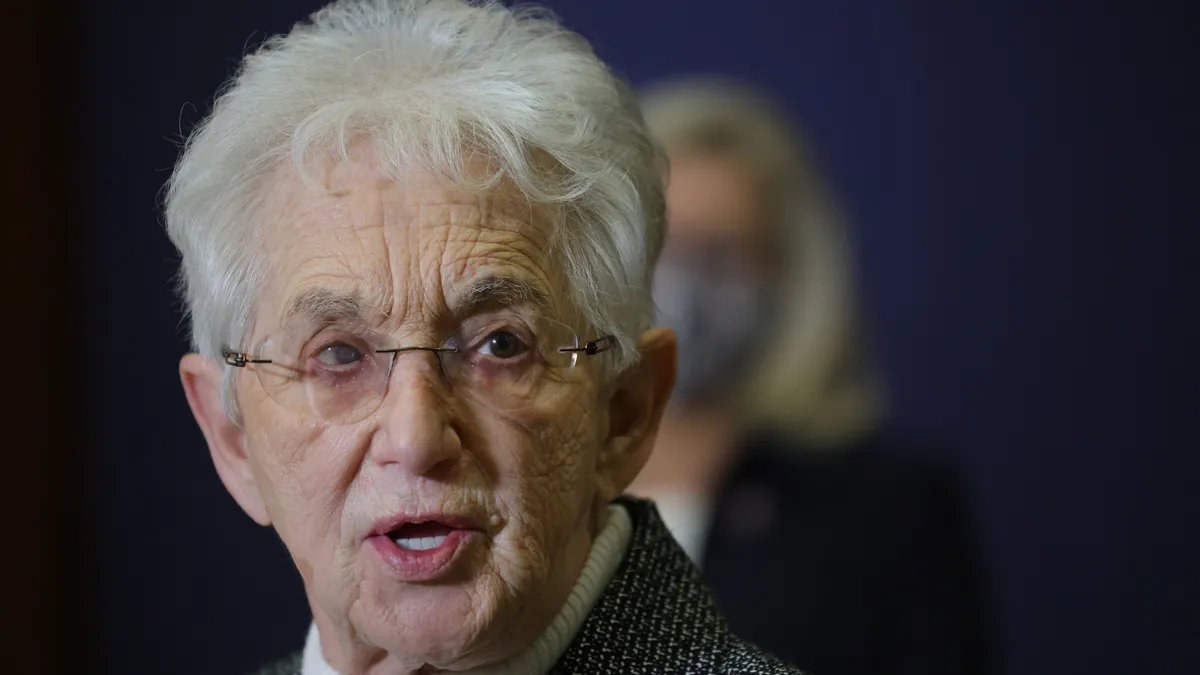Dive Brief:
- Lawmakers are doubling down on their inquiry into the U.S. Department of Education, questioning its authority over final agency rules following the overturn of the Chevron doctrine.
- Rep. Virginia Foxx, chair of the House Committee on Education and the Workforce, and Rep. James Comer, chair of the House Oversight and Accountability Committee, sent a letter to Education Secretary Miguel Cardona on Wednesday requesting a list of final rules and their pending court cases that could be impacted by the U.S. Supreme Court's decision last month to overturn the Chevron doctrine.
- Foxx and Comer also requested a list of guidance documents, which states and districts often rely on when setting policy in addition to final rules, as well as proposed rules.
Dive Insight:
Last month, in Loper Bright Enterprises v. Raimondo, the Supreme Court overturned a longstanding doctrine that had allowed courts to defer to agency interpretations of ambiguous statutes. The decision's fallout is expected to reverberate across industries — including the K-12 sector — as lawmakers and courts question federal agency rules, including the Education Department's Title IX rule finalized in April.
In that vein, Sen. Bill Cassidy, R-La., sent a letter to Cardona just two days after the Supreme Court decision, calling it “an opportunity for executive agencies to re-examine their role relative to Congress, and to return legislating to the people’s elected representatives.”
The letter cited the department's recent Title IX rule protecting LGBTQ+ students as an example of the agency overstepping its authority and inquired into whether the department will "pause or stop any existing rulemaking activities in light of the Court’s decision."
The letter from Foxx, R-N.C., and Comer, R-Ky., on Wednesday echoed Cassidy's sentiment.
"This long-needed reversal should stem the vast tide of federal agencies’ overreach," they said about the Supreme Court decision. "Given the Biden administration’s track record, however, we are compelled to underscore the implications of Loper Bright and remind you of the limitations it has set on your authority."
The heads of the two committees, which have legislative and oversight jurisdiction over the Education Department, said they "will exercise our robust investigative and legislative powers" to ensure adherence to the Loper Bright decision.
In addition to triggering legislative oversight, the overturning of Chevron is also expected to bolster existing lawsuits against the Education Department's Title IX rule. Lawsuits filed by conservative attorneys general have already stymied the rule in 14 states after judges issued injunctions temporarily. Those lawsuits have commonly claimed that the department overstepped its authority in issuing the rule, an alleged practice the Loper decision also intended to curb across agencies.
The Education Department said last week it was reviewing Cassidy's letter and has historically stood by its rulemaking process, especially in the case of its Title IX rule, which took nearly two years to finalize and received over 240,000 comments.
According to recent court documents, the department intends to escalate lawsuits against the rule to the 5th and 6th U.S. Circuit Court of Appeals, challenging the blocks currently in place on the rule.
In the meantime, school districts are still required to adhere to federal regulations — including the Title IX rule, which goes into effect Aug. 1 — unless overturned by federal courts in their jurisdiction.
















